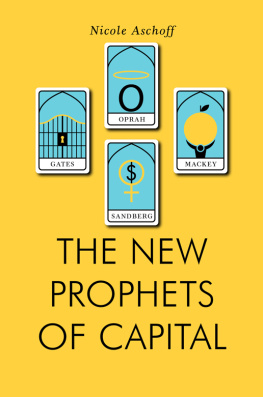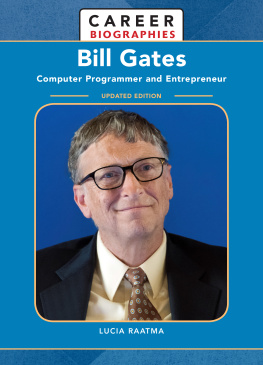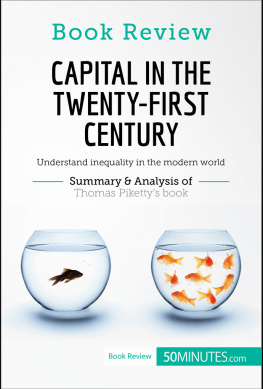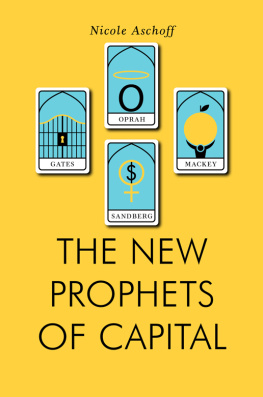We are all storytellers. We embellish, ignore, and cherry-pick moments of our lives to create an emergent story of us. The stories we tell are integral to our lives. They help us find friends and lovers, they demonstrate our values and beliefs, they showcase our competence and trustworthiness, and they teach our children how to navigate the world. Our stories make us appear interesting, compassionate, heroic, and responsible. Most of our stories lack potency, thoughthey linger close to us and get lost in the cacophony of other peoples stories. But on rare occasions stories grow, often in direct proportion to the power of their teller, to become big, all-encompassing stories that define a people, a social movement, or a moment in history.
Stories become powerful and defining because people love stories and society needs stories. Big stories reproduce the social order by providing meaning and mooring. They get us out of bed in the morning and remind us where we are going in life. They identify our friends and our enemies. They stir our hopes and allay our fears. They keep alienation at bay. The big stories we hear and tell todaystories about freedom and terrorists and the American Dreamare as integral to society as the old stories of Anansi, Manas, Beowolf, and Parvati were to the societies that created them.
Capitalist society is particularly in need of stories. Our everyday lives are defined by going to school and to work, caring for our kids, listening to gossip, having a laugh, and stressing about this or that. Yet all of these micro-interactions take place within a set of larger structures and relationships whose primary purpose is to make a profit. The vast majority of people go to jobs that were not created to meet human needs but to give the owners of capital a return on their investment. All of us, wage-earners and capitalists alike, are locked into a system designed to perpetually accumulate more and more profit, not to satisfy human needs or provide for the common good. This is a strange way of organizing society. It goes against our nature as social, mutualistic beings. Yet for capitalism to survive and thrive, people must willingly participate in and reproduce its structures and norms. Coercion and duress work to integrate the poorest and most desperate members of society, but they are not sufficient to ensure the generation of profits in the long term. Large swathes of the population must actively, or at least passively, believe that capitalist society is worth their creativity, energy, and passion, that it will provide a sense of meaning, that it meets their need for justice and security.
But there is nothing intrinsic to the logic of profit-making itself that is capable of providing this sense of meaning and justice. Capitalism must draw upon cultural ideas that exist outside circuits of profit-making, some of which support the norms and structures of capitalism and some of which are critical of capitalism. As sociologists Luc Boltanski and Eva Chiapello argue, capital needs both types: while individual capitalists may attempt to repress and displace challenges to the primacy of profit-making, at the systemic level critical voices are productive and fruitful for capitalism, forcing capitalism to evolve and temporarily resolve some of its contradictions and thus preserving it as a system for the long haul. Indeed, capitals ability to periodically present a new set of legitimating principles that facilitate the willing participation of society accounts for its remarkable longevity despite periodic bouts of deep crisis. Following Max Weber, one of the foremost social thinkers of the twentieth century, Boltanski and Chiapello call this belief system, which justifies and legitimates capitalism and the primacy of profit-making, the spirit of capitalism.
Stories have long been a key component of the spirit of capitalism. Ascetic Protestants told stories glorifying economic rationalism and the entrepreneur. Benjamin Franklin taught us that time is money and that frugality and thrift are virtues demonstrating sound character. The great Captains of Industry told stories about perseverance, vision, and how the law of competition would further the human race. These work-as-virtue, profit-as-virtue stories have been remarkably successful. To work for our entire lives seems perfectly natural. That more and more things once outside the commodity relation are now for sale on the market is something we rarely question.
People have also told stories that challenge capitalism, and, indeed, critiques of capitalism are as old as capitalism itself. The story of the Haymarket Massacre and the anarchists who died fighting for the eight-hour day was told by workers across the globe. In 1886, workers gathered in Haymarket Square in Chicago to protest the killing of several workers by police the previous day. An unknown person threw a bomb at the police as they tried to disperse the crowd, and police responded by firing into the crowd, killing four workers and injuring dozens more. Workers from around the world protested the killings and the sham trial that followed, designating May 1 as International Workers Day to commemorate the event. In the early years of the twentieth century Joe Hill and other Wobblies travelled the country telling stories and singing songs like Solidarity Forever and The Rebel Girl about worker solidarity and building one big union to unite workers against the bosses. Countless retellings of the bitter campaigns to organize Pullman sleeping car porters and the 1930s autoworker sit-down strikes turned people like A. Philip Randolph and Walter Reuther into working-class heroes.
Stories that challenge the status quo are not just about the economic logic of production, profits, and class struggle. The circuits of power in capitalist society are bolstered by systems of oppression and domination that extend beyond class to gender, race, and sexuality. The 1950s and 1960s were alive with stories about the anger of Rosa Parks and Martin Luther King and Malcolm X at Jim Crow and racism. People commiserated with Betty Friedans frustration with the cult of femininity and listened to stories about Rachel Carson and her quest to curb pesticide use and later about the Oglala Lakota and their standoff with the FBI at Wounded Knee. Throughout the world, stories circulated of emancipation from imperialism, colonialism, and totalitarianism. They gave rise to a larger vision of society, one that looked different from the postWorld War II era of Jim Crow, corporate power, exploitation, and domestic domination. By the 1960s and 1970s, the US Congress was implementing watered-down versions of what these movements were demanding, passing unprecedented legislation protecting workers, women, people of color, consumers, and the environment. World leaders bemoaned an excess of democracy.













